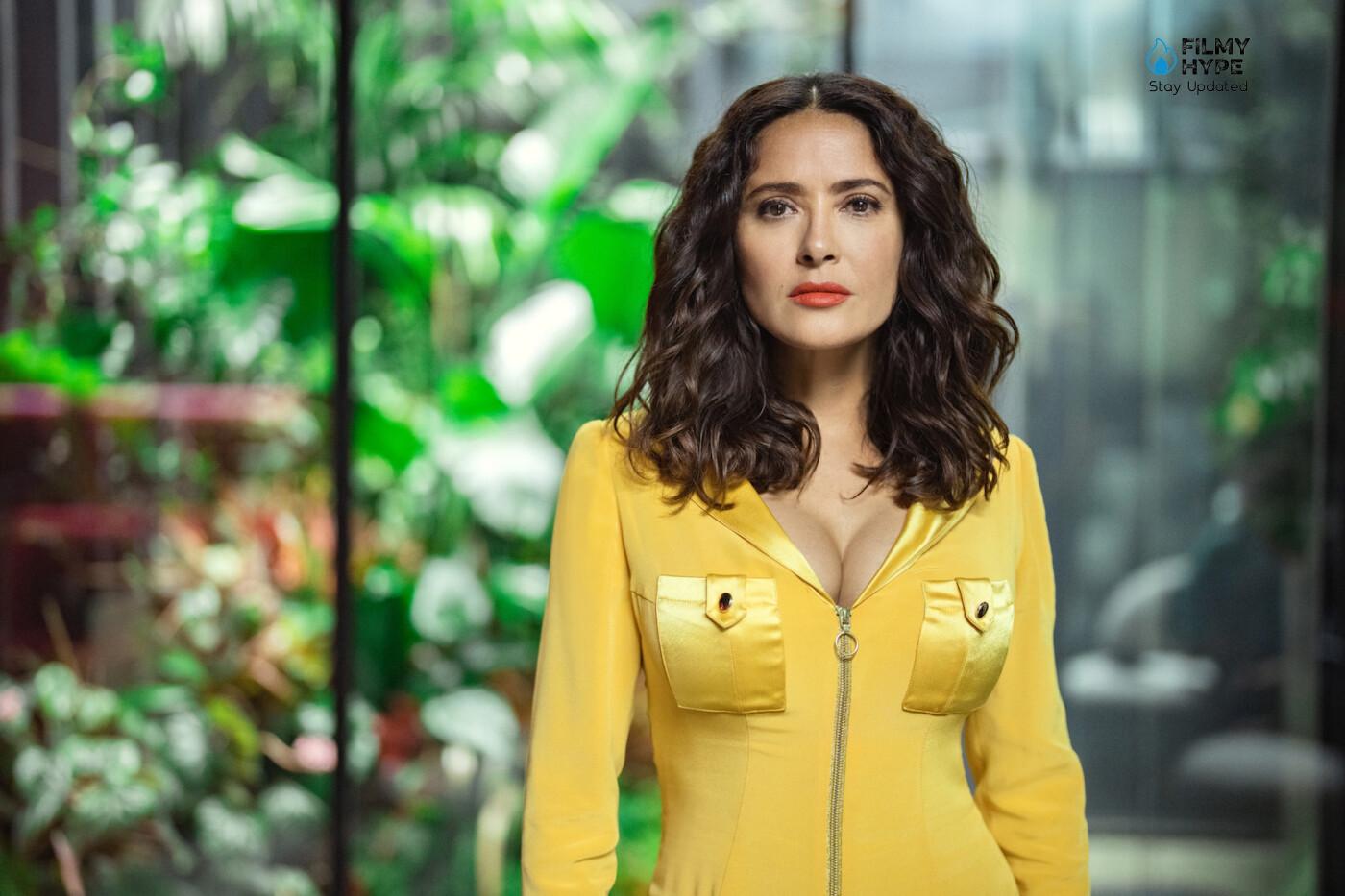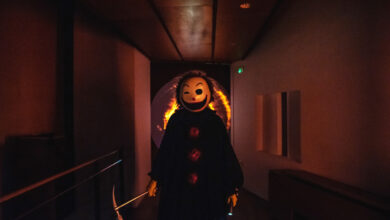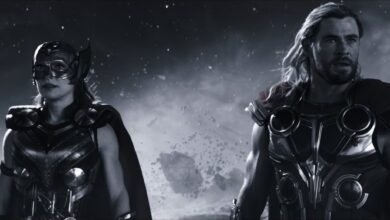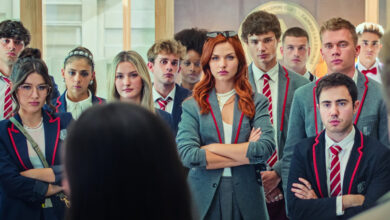Black Mirror: Does Series Still Make Sense or Has It Been Overtaken by Reality?
Black Mirror Season 6 recently aired on the Netflix streaming platform. Once upon a time, there was a world in which the internet, smartphones, streaming, and artificial intelligence did not exist, except perhaps in a confused and unclear way in the minds and works of brilliant science fiction authors. Yes, we know that for some very young people, it may seem at least strange to imagine, but it is the reality in which many of us grew up, a reality in which there was very little, or nothing connected, with all the merits and defects of the case. But we are not here to be nostalgic or to remind you of how “it was better when it was worse”, far from it. If anything, we are here to complain about how, in just over a decade, reality has changed so quickly as to make one of our favorite TV series almost obsolete. And in fact, perhaps we should have started with “Once upon a time Black Mirror, a series that combined satire and science fiction so effectively as to make it unique in its genre”.

Black Mirror: Does Series Still Make Sense?
But to do it decently (complaining, of course) – almost like a wannabe boomer which we aspire to be – we must necessarily start again from when all this incredible technology that surrounds us today not only did not exist but was also very difficult to imagine. And in fact what had decreed the great success of much of the TV of the 60s – and therefore of some of the first science fiction television phenomena, such as The Twilight Zone, Doctor Who, The Prisoner, or Star Trek – had been precisely the freedom and the possibility of flying with the imagination that these programs offered, as well as the ability of its authors to conceive new worlds, alternative realities, and dystopian societies. And the more the episodes, and the scary worlds in which they were set, were in any case close to our reality, and therefore plausible, the more these programs were successful and conquered an ever-wider audience.
The Black Mirror of An Era That We Have Not Yet Understood?
So, let’s jump forward five decades, and we arrive at 2010: there are a great many fantastic stories, fantasy sagas continue to conquer oceanic audiences, and science fiction has become increasingly philosophical, metaphorical, distant, and even geographically. from the world we live in. This is because technology has instead made us all closer, all more connected indeed. 2010 is the year of one of the most beautiful and important films of this current century, The Social Network by David Fincher, which tells of the birth of Facebook, which was already changing the world, perhaps forever. But Fincher’s film is not science fiction and does not tell any dystopia, it is simply fictional reality.
In the same year, however, there is someone who, precisely because he grew up with the aforementioned sci-fi series, still wants to imagine. But no more alien planets or worlds populated by dragons and wizards. Charlie Brooker, that’s his name, prefers to imagine what could be the worst possible scenarios that could happen in our world, simply by looking beyond what is already happening. Looking beyond the black screen/mirror that we all have in front of us in one way or another and looking beyond the news and trends that populate our lives.
He had already done it a few years earlier, with the remarkable miniseries Dead Set, in which he imagines what could have happened to the inhabitants of the Big Brother house if, during the popular show, the world had been hit by a zombie epidemic. But precisely there we were talking about zombies and almost impossible scenarios – almost because, as we remember, there was still a pandemic in 2020 and in that case, the reality show went on – and for this reason, in addition to being scared, we laughed, and a lot. But would we still laugh if instead, we began to think about all the potential drifts that the technology we use every day could take?
What could we see in the reflection if, instead of being distracted by the contents that pass quickly before our eyes, we concentrated only on the blackness of those screens? For these reasons and many others, when it arrived in December 2011 on Channel 4, Black Mirror conquered and amazed everyone. Why no one expected anything like that from a comedic half-writer like Charlie Brooker had always been. But above all because no one was ready to observe so deeply a reality that was changing too quickly. And that no one had understood yet. But on the other hand, are there any of us, even today, who can say that we have truly understood the world we live in?
A Series in Free Fall?
After that December 2011, those first three very powerful episodes – Message to the Prime Minister (The National Anthem), 15 million celebrities (15 Million Merits), and Dangerous Memories (The Entire History of You) – which already by themselves contained within them anguish, fear, and desperation to be enough for a lifetime, the second season arrives in 2013 with three new episodes, new levels of cruelty and cynicism (what is Orso Bianco/White Bear if not the definitive “torture porn”?) and an ability to anticipate and predict the frightening future: so much so that it is really difficult to watch the episode, Vote Waldo! (The Waldo Moment) today and judge it the same way as 10 years ago. Because what seemed excessive and caricatured then has already become reality on more and more occasions today.
Then follows a (good) Christmas special episode with Jon Hamm, who has nothing of the good-naturedness of the holiday, and then the announcement of the acquisition of the series by Netflix. And this is where many begin to tremble: will this be the beginning of the end for Black Mirror? Will the streaming giant make Charlie Brooker less cynical and ferocious? The answer is almost certainly no, because the third season dated 2016 remains at a medium-high level. Maybe it changes tone in some moments and not every episode works at its best, but for example, the splendid San Junipero despite the apparent happy ending is Black Mirror to the core. As well as Free Fall (Nosedive) starring Bryce Dallas Howard, as “funny” as close, perhaps too much, too many behaviors that we already experience habitually and daily.
But those who feared a drop in quality had their reasons for doing so: we feel we can blame Netflix for the doubling of episodes, yes, but it is clear that Brooker has been struggling for some time to come up with ideas worthy of his fame. The fourth season, from 2017, proves it even more but it is still salvageable. The real problems begin with the fifth, that of 2019, in which it is really hard to find the spirit of a series that now seems destined to end. On the other hand, even with the interactive film Bandersnatch, however original and enjoyable, Brooker seemed to have already said everything he had to say on the subject of technology. In the meantime, we have also arrived at 2020. A vintage that we certainly don’t have to present or remind you of. Also, Charlie Brooker has already done it for us, with the fake documentary Death to 2020 in which he ironically recounts the absurd events of that year which by many had been defined as “like an episode of Black Mirror“.
Black Mirror Don’t Disunite?
So, we’re done, right? Do we all agree that Black Mirror has run its course? That reality has surpassed fantasy, and that technology runs so fast that even if they wanted to, no author could ever keep up on these topics. On the other hand, if even just a few years ago one could travel with the imagination and imagine Artificial Intelligence taking over and making humans obsolete, who could ever write about all this today? If not an AI itself, that is. Yet, somewhat surprisingly, a few weeks ago Netflix announced a sixth season and today we find ourselves with five new episodes of Black Mirror, all signed by Charlie Brooker, ready to be enjoyed. And to taste them we have also tasted them, because the production value is always on average high, brilliant moments and WTF is not lacking, but above all the idea of investigating ourselves once again and what awaits us in the future we liked Very. But the truth is that Black Mirror 6 seemed to us very much, too far from what we remembered.
It seemed to us a series that has now lost its identity but also and above all coherence. If already with the last few seasons the series had moved further and further away from that dark and hyper-technological future that had struck and upset us, to focus more on a not-too-dystopian present, in this last one (because it will be the last one right?) season on more than one occasion we even go back to the past, up to the 70s. And on more than one occasion Brooker’s writing leaves any claim to “plausibility”, even flowing into the supernatural. As if Black Mirror were by now just a collector of genre stories and films, without its own logic or editorial line. But above all without really having something to say, and not just a story to tell.
Netflix is to blame, many will say, but we don’t agree. Brooker is to blame for sure and his inability to keep up with himself and his genius. But the fault lies above all with the era and the world in which we live, which now generates dozens and dozens of Black Mirror scenarios every year, without anyone commissioning or writing them. How could Black Mirror tell the future when we are now in that future of which it was the spokesperson, almost like a modern Cassandra? When we live in a world where Brooker himself, you may have read the news, and turned to ChatGPT to test the AI asking to write an episode of Black Mirror.
The truth is that if there was a lesson to be learned from that small British series that made the world stand out in 2011, we certainly haven’t learned it and it’s probably too late to do it by now. The truth is that those black screens/mirrors you were talking about are practically never turned off. The only way to truly enjoy new episodes of Black Mirror is to live them and enjoy them while we can. For everything else, we’ll meet you in San Junipero, and we’ll see you directly there.





